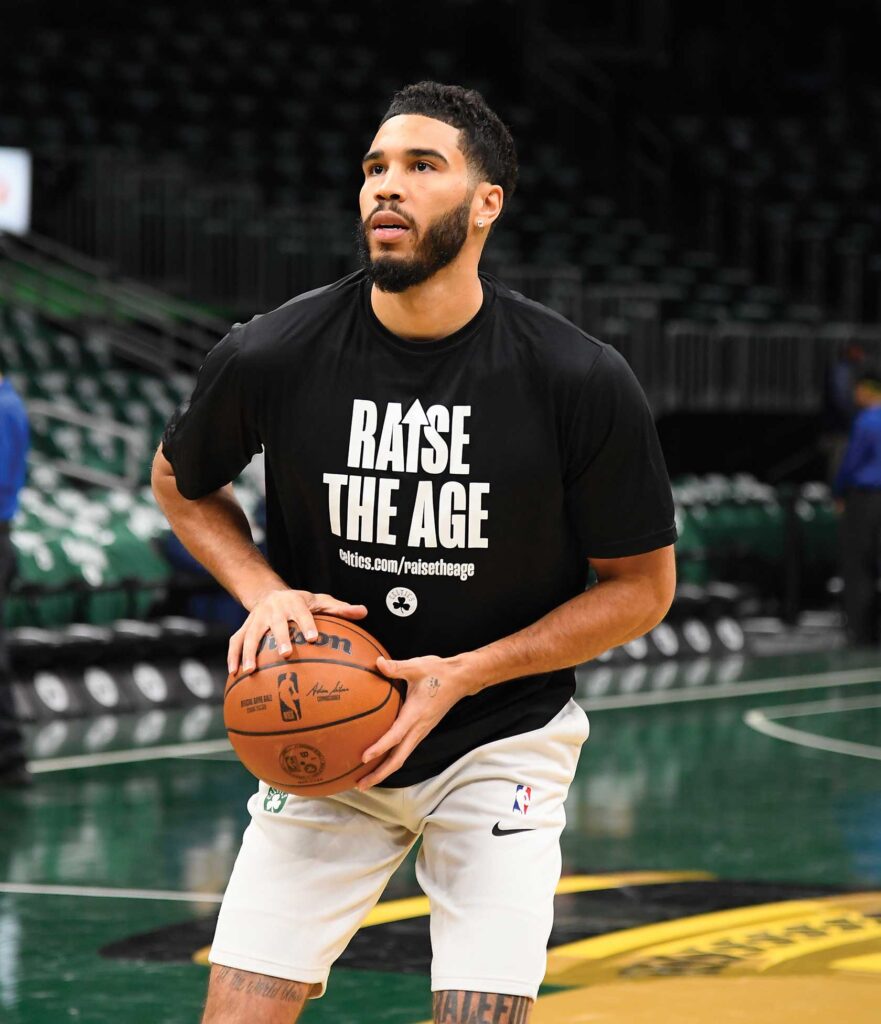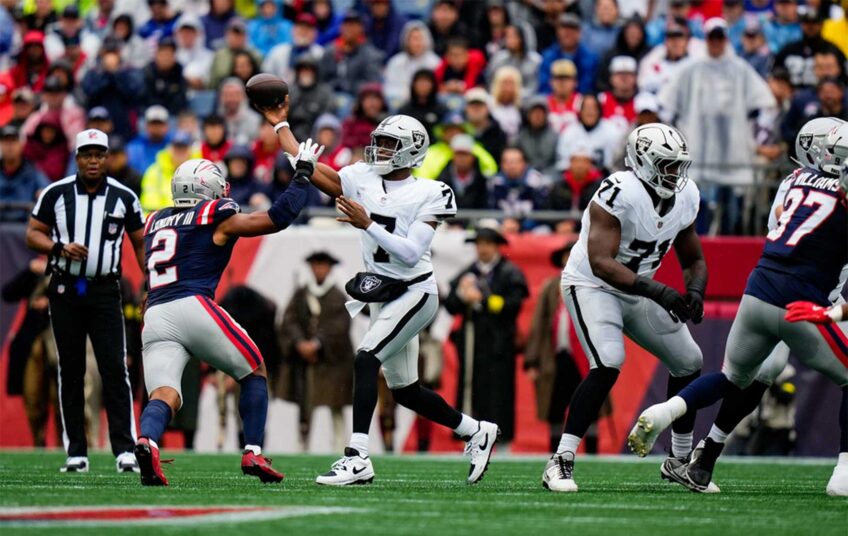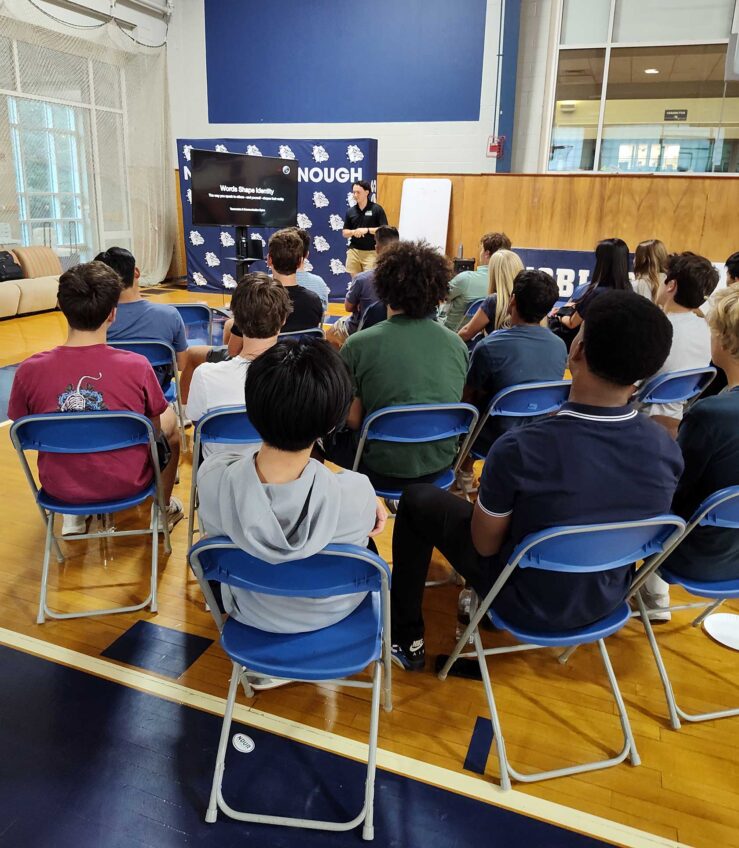
Banner Sports sponsored by Cruz Companies
Professional athletes have joined forces to put the issue of raising the maximum age of juveniles to 21 in front of the country.
On November 11, the Boston Celtics took center stage in a nationally televised in-season tournament game wearing “RAISE THE AGE” warmups to signal their support for Massachusetts legislation that would keep 18- to 20-year-olds in the juvenile system rather than the harsher adult criminal system. Players in the National Football League and other leagues, along with those in the entertainment industry, have bonded on this vital issue.
The Judiciary Committee of the Massachusetts Legislature held a hearing in September on a version of the bill. The formal legislative session for this year ended recently.
In 2016, Vermont became the first state to pass such a law, allowing those under 21 to be treated as juveniles. Since 2022, 18- and 19-year-olds have been handled in juvenile court rather than the adult system. That same year, the state’s family courts established jurisdiction over offenders in that age range.
The Vermont law also allows the equivalent of district attorneys, instead of filing charges against youthful offenders, to refer them to programs emphasizing rehabilitation and returning them to their communities.
State Senator Richard Sears, who was one of the sponsors of the law, says that teenagers and young adults do not yet have the brain development to allow them to gauge their actions thoroughly. Sears said the legislature’s reasons for passing the law were two-fold: “It’s both research and understanding that the current system doesn’t address the needs of teenagers.”
Opponents have argued that if you are old enough to do the crime, particularly murder and other capitol offenses, you are old enough to do the time.
It is not as easy as that for this journalist. A deeper look into the issue should explain my thoughts.
When a juvenile commits a crime, they are subject to dealing with the judicial system, a daunting task. Once a youthful offender stands before the court of law, he or she realizes the magnitude of the situation. Their young minds are generally terrified of the potential consequences of their behavior. Stay with me here.
I have read and researched more studies on adolescent crime than many sociologists and criminologists. I have attended more funerals and seen the tears on the faces of the families, relatives and friends of the dead as well as the shame, fear and horror of the family of the youth charged with the taking of a human life.
For most of my life, I have asked: “What should we do with youthful offenders, particularly those involved in capital crimes? Do we lock them up and throw away the key?” I give a flat-out “no” to those questions. A life is too precious to throw away, especially one of a young person who made a tragically wrong decision.
I speak from experience. I have worked with youth from my teenage years to the present day. I have listened to their concerns about life long enough to realize their difficulty navigating this day and age. I have witnessed first-hand the devastation of young people who get placed in adult prisons. It is a nightmarish thought to have to ponder.
My advice to young people has always been to think before you act and make good life decisions every minute of your day.
For the ones who are truly listening, I try to tell them what life is like, particularly for people of color in this country.
For the ones who listen and take to heart what I am trying to teach them, there is a chance of success and survival.
There is a likely destination for those who don’t listen, a journey through our judicial system. For youths charged with more serious crimes, the specter of going to prison for years and possibly for the rest of their lives is a cold slap in the face of reality.
I have been in enough courtrooms and seen enough young people’s faces turn ashen with fear when a judge sentences them to jail or prison. I have witnessed the toughest-of-the-tough break down into childlike tears upon hearing a sentence that will alter their lives, possibly forever.
Our legislative and judicial systems have wrestled with the question: At what age should a young person be considered an adult and thus be tried in a court of law?
Opponents of an age increase, particularly law enforcement officials, argue that 18- and 19-year-olds understand right from wrong.
Another part of their argument is that the proposed change and lifting the age to 21 would require a costly restructuring of the justice system. I don’t buy that argument.
In 45 states, the maximum age for trying someone as a juvenile is 17. But in countries such as Germany and Croatia, the period for adult criminal responsibility is set at 21, and the Netherlands puts it at 23.
It is time for the Massachusetts Legislature to make the decisive move and pass this bill sooner than later.






